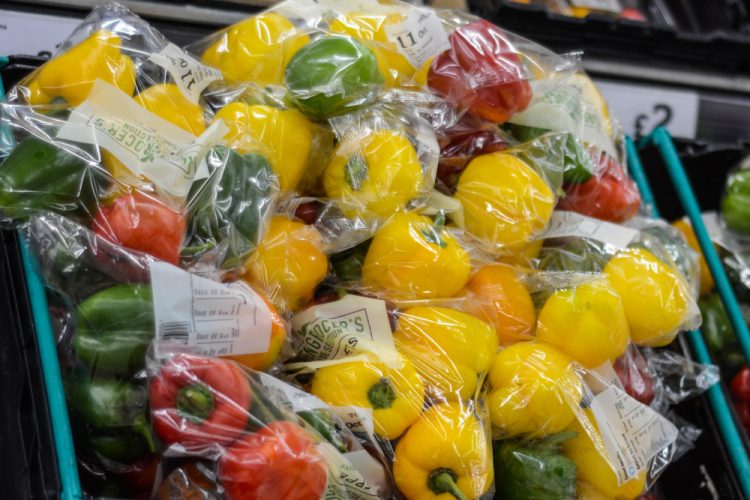Supermarkets allowed to “mark their own homework” on plastic waste, campaigners warn
Posted: 15 May 2025 | Ben Cornwell | No comments yet
Campaigners warn against retailers overseeing plastic waste reduction after the government appointed industry representatives to manage the UK’s Deposit Return Scheme.


Credit: olesea vetrila / Shutterstock.com
Campaigners have strongly criticised the government’s decision to appoint supermarket executives to help manage the UK’s upcoming Deposit Return Scheme (DRS), warning it risks undermining efforts to tackle plastic waste.
Why should billion-pound companies be deciding our environmental laws when their track record shows they cannot be trusted?
The new industry-led management body, which includes representatives from major retailers such as Lidl, Co-op and Tesco, has been tasked with overseeing the scheme, due to launch in October 2027. However, representatives from several major retailers, including Tesco, Lidl and ASDA, had previously requested a delay to the scheme’s implementation, citing financial concerns.
Environmental advocates say this arrangement creates a clear conflict of interest, allowing the very companies responsible for vast plastic waste to influence the rules designed to regulate it.
“Big supermarkets are deliberately stalling the action we need to see and must not be left to mark their own homework when it comes to tackling plastic pollution,” said Dominic Dyer, Chair of the Nature2030 campaign.
“With the biggest high street retailers now sitting on the board of Britain’s recycling scheme for single-use bottles, there are serious concerns about whether they will put profits before environmental protection.
“Why should billion-pound companies be deciding our environmental laws when their track record shows they cannot be trusted?”
The UK lags behind many European countries, including Germany, France and Spain, in tackling supermarket plastic waste. Despite the scale of the problem – estimated at 30 billion pieces of unnecessary plastic annually – recent figures show that 70 percent of soft plastic collected through supermarket schemes is incinerated rather than recycled.
Survey results reveal public concern
New research by Nature2030 exposes widespread public dissatisfaction with supermarkets’ plastic practices. The survey found 78 percent of respondents believe retailers still use excessive single-use plastic, while 69 percent feel profits are prioritised over environmental responsibility.
Health concerns are also rising, with half of those surveyed worried about the impact of plastic on health. Nearly half (49 percent) said they would be more likely to shop at supermarkets that completely eliminate single-use plastics.
Furthermore, public support for regulatory action was strong in the survey, with 57 per cent backing additional taxes on companies using non-recyclable single-use plastic packaging.
Discussing public attitudes, Polly Billington, Labour MP for East Thanet and Commons Net Zero Committee member, commented: “While the public grows increasingly concerned about the health impacts of mountains of unrecycled waste, supermarkets continue to generate millions of tonnes of unnecessary plastic packaging each year, leaving it to already over-stretched councils to clean up our beaches and natural beauty spots.”
Government intervention and reform needed
Campaigners acknowledge the Deposit Return Scheme (DRS) as a positive step but stress that far stronger government action is essential to tackle the root cause: plastic production itself.
They point to successful European models, where deposit return schemes in EU countries achieve bottle recycling rates averaging 94 percent, incentivising consumers through small refundable deposits on single-use drink containers.
“Britain’s plastic crisis can no longer be ignored. Supermarkets are turning a blind eye to the mountains of waste they produce each year, and they will not clean up their act alone; ministers must legislate.”
Billington echoed the call for reform: “The deposit return scheme is a start, but we need comprehensive change from businesses to drive genuine reduction in plastic production, not just recycling targets that mask the true scale of the problem.”
Related topics
Environment, Labelling, Regulation & Legislation, retail, Supermarket, Sustainability, The consumer, Trade & Economy









